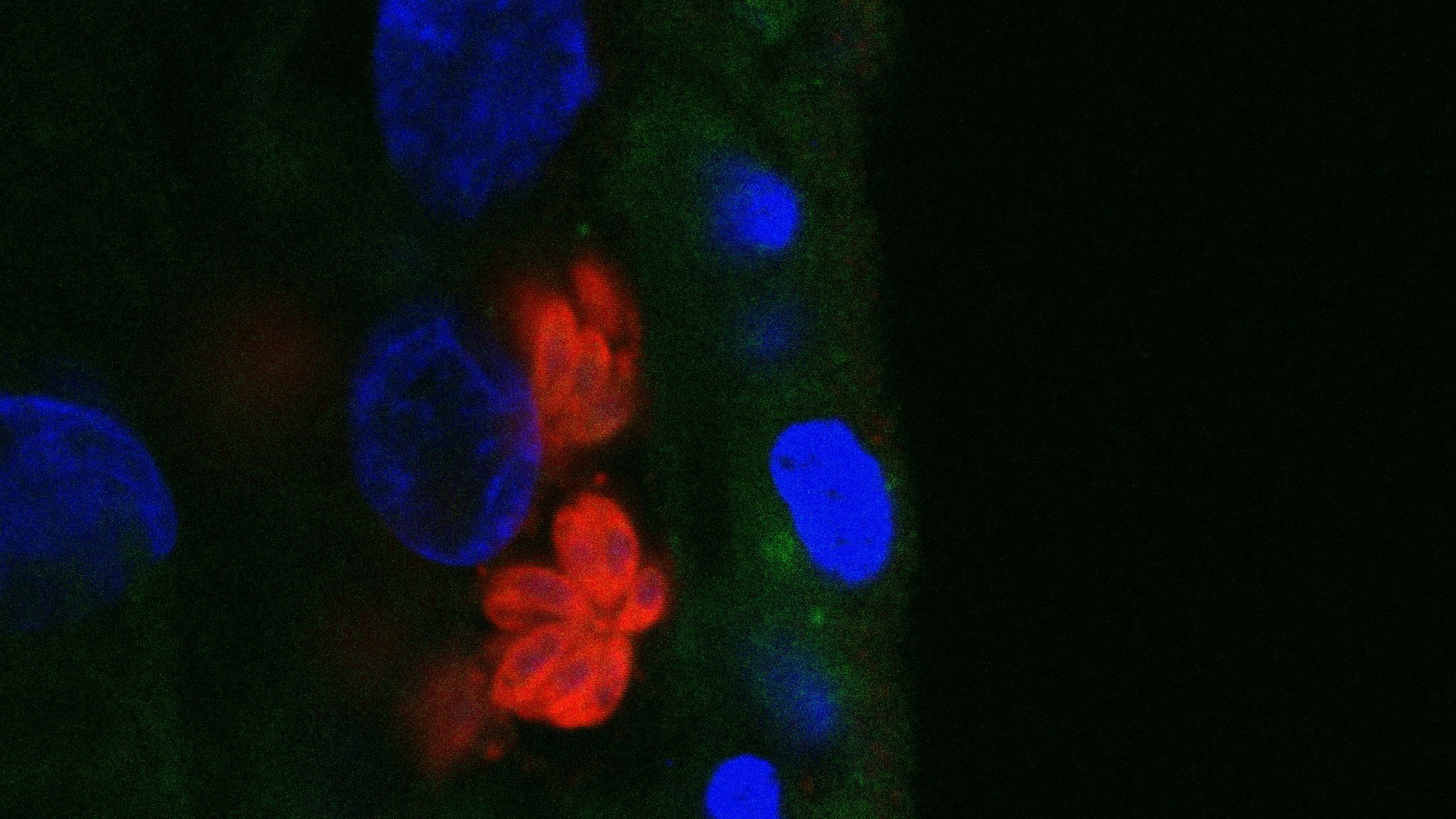
For the first time, scientists have created detailed maps of immune cells in the placenta, showing how the cells defend the fetus from invaders during early pregnancy.
Such infections can lead to serious complications, such as pregnancy loss and preterm birth, so this knowledge could someday be used to develop treatments that stop these problems from arising, the researchers said.
To create these maps, the researchers used "mini-placentas" grown from 0.15 square inches (1 square centimeter) of placental tissue donated by women who were around six to 14 weeks pregnant at the time. These tiny versions of the placenta were cultured in the lab using growth-inducing chemicals.
The scientists used the placentas to investigate how three major pathogens infect the organ: the parasites Plasmodium falciparum and Toxoplasma gondii, which cause malaria and toxoplasmosis, respectively; and Listeria monocytogenes, a bacterium responsible for an infection called listeriosis.
Related: 'Mini placentas' may reveal roots of pregnancy disorders like preeclampsia
The placenta acts as a selective barrier between the mother and developing fetus during pregnancy, meaning it lets some substances, such as nutrients, through while blocking others, such as harmful germs and toxins. This is important, as during the early stages of pregnancy the fetus' immune system is only just beginning to mature.
However, T. gondii and L. monocytogenes can sneakily cross the placenta, while P. falciparum can attach to it. Scientists still don't fully understand how these infections ultimately lead to pregnancy complications, the researchers wrote in a study published Friday (May 3) in the journal Cell Systems.
"While infections during pregnancy have been known to cause complications, including miscarriage and stillbirth, very little has been known about the underlying mechanisms," Regina Hoo, lead study author and a postdoctoral fellow at the Wellcome Sanger Institute in the U.K., said in a statement.
That's where the miniature placentas come in — they provide a window into early pregnancy that would otherwise be very difficult to observe.
Using their placenta models, Hoo and colleagues mapped how the organ responds to infection with T. gondii, L. monocytogenes and P. falciparum at the level of individual cells. They discovered that immune cells called Hofbauer cells — fetal versions of pathogen-gobbling cells called macrophages seen in adults — activate in response to all three infections. However, different molecular switches set them off.
All three pathogens can also infect Hofbauer cells, the team found. For example, T. gondii can hide in them as a way to evade the immune system and travel around the fetus' body.
Across the board, the infections triggered inflammation in the placenta that disrupted important functions, such as communication between cells. This implies that some pregnancy complications could be a knock-on effect of this inflammatory response, the team reported.
"Infections during pregnancy can have devastating impacts, and there are limited pregnancy-specific treatment options that can help," Roser Vento-Tormo, co-senior study author and a group leader in cellular genetics at the Wellcome Sanger Institute, said in the statement.
Although an immune response is still "crucial" to combat infection, the authors suggest that new drugs could theoretically be developed to quell this uncontrolled inflammation and thus prevent disruptions in fetal development.
By charting a highly detailed atlas of the immune system of the early placenta, "we hope that our research can be used by the research community worldwide to help develop new ways to understand and treat pregnancy complications that impact millions of lives every year," Vento-Tormo said.
Ever wonder why some people build muscle more easily than others or why freckles come out in the sun? Send us your questions about how the human body works to community@livescience.com with the subject line "Health Desk Q," and you may see your question answered on the website!







